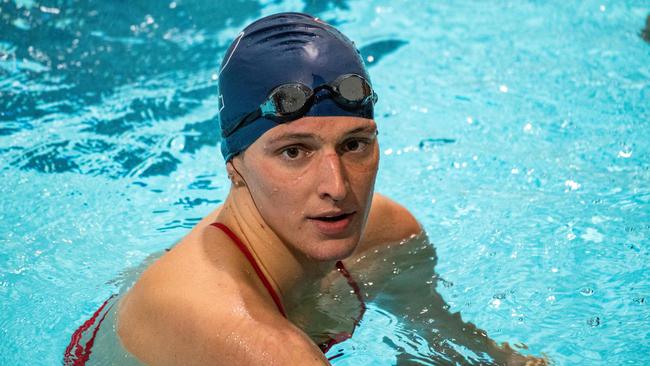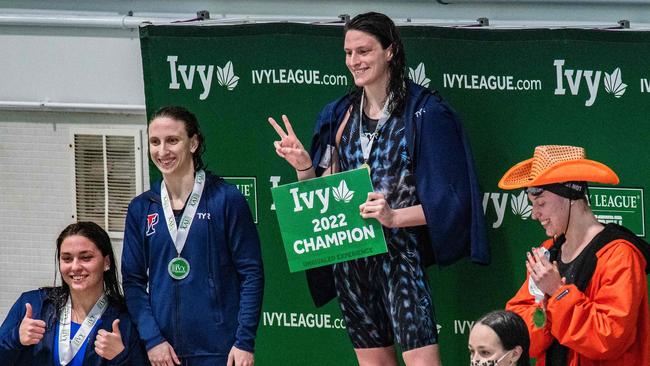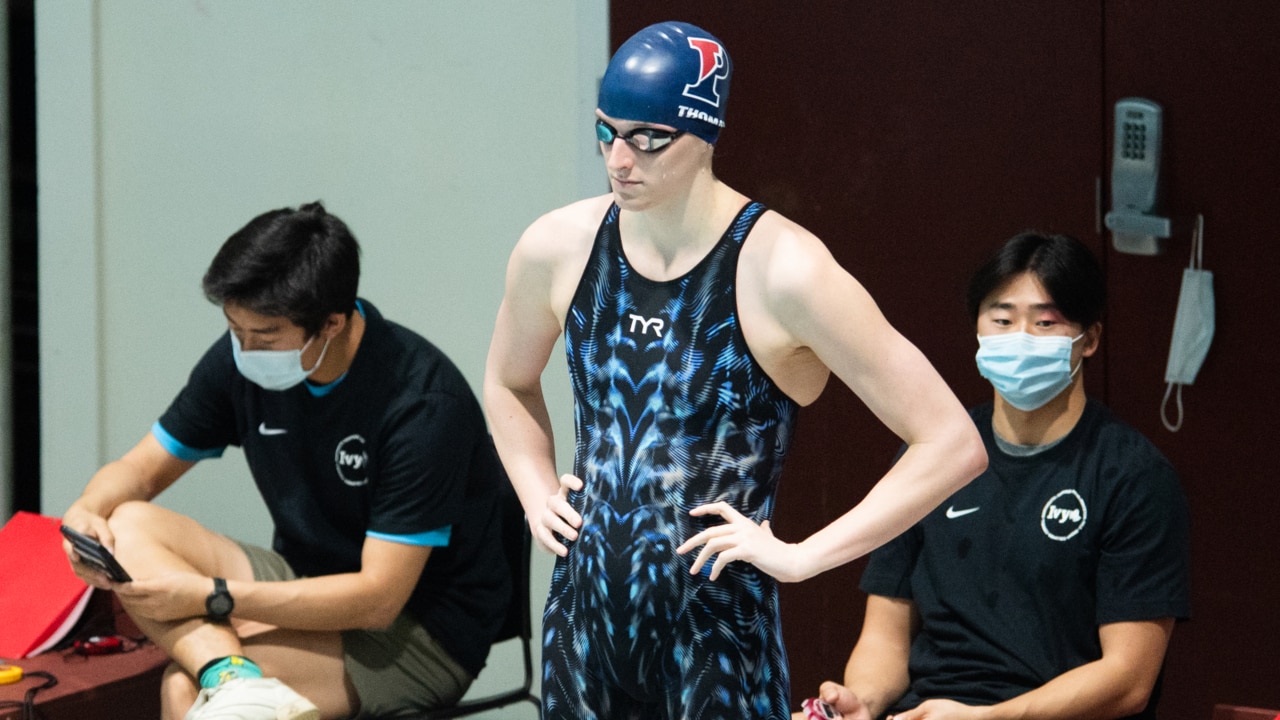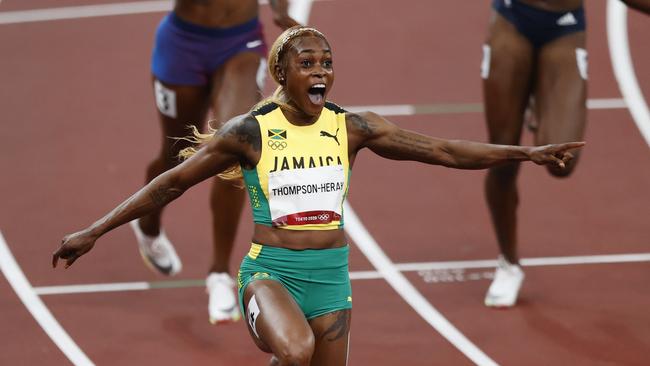
This year, however, after transgender swimmer Lia Thomas won the 500-yard freestyle, a fierce debate has erupted internationally over fairness in female sports. So much attention has been generated by Thomas’s performance that Florida governor Ron DeSantis was moved to release an official proclamation declaring the Florida-born woman who won second place the “rightful winner” on Tuesday.
The college titles matter to Americans because the swimmers who win them often go on to win at the Olympics. The stakes are high. In fact, two of the women who were beaten in the pool by Thomas were silver medallists at last year’s Tokyo Games.
The backlash against Thomas has been as predictable as it has been intense, but it would be a mistake to chalk it all up to transphobia. Just as there was a swift public backlash against Australian cricketers after the ball tampering scandal in 2018, the backlash against Thomas is driven more by perceptions of unfairness and cheating than by discomfort with transgender identity.

There’s no public anxiety over trans men who compete in the men’s divisions, for example, because they’re not perceived as retaining unfair physical advantages; on the contrary, they’re perceived as entering tougher competitions. The anxiety is not about trans athletes in general but the specific problem of biological males competing against biological females.
Thomas was born a biological male and competed in the men’s division in swimming but began transitioning in 2019, a process that involves testosterone-suppressing medication.
Thomas’s rank in the men’s division was 554th in the 200-yard freestyle and 65th in the 500-yard freestyle. This year, after switching to the women’s division, Thomas now ranks fifth and first respectively.
“This shows, to me, that if she had been born female, she would not be succeeding the way she is succeeding now,” 18-time Grand Slam winner Martina Navratilova has said.


Female athletes have been sounding the alarm bell over muddled and misguided rules that have allowed athletes with XY chromosomes to compete with XX athletes for years.
Last year Navratilova, with professor of law and former professional track athlete Doriane Coleman, wrote in online journal Quillette that the International Olympic Committee had shirked its leadership responsibilities on this issue by releasing vague and non-binding guidance that avoided reference to biology. The IOC instead prescribed that athletes should be excluded from women’s competitions if they possessed a “disproportionate advantage” over others.
Navratilova and Coleman have argued that such vague terminology could lead to absurd interpretations that would allow middling male athletes to participate in women’s sports, while excluding exceptional females if they were determined to have “disproportionate advantage”. Imprecise guidelines not grounded in biology are clearly not fit for purpose.
The science is clear. Before puberty, boys and girls show no real difference in testosterone levels, or athletic performance. But during puberty, male testes ramp up the production of testosterone 30-fold, which leads post-pubescent males to have circulating testosterone that is 15 times higher than that of women at any age. Testosterone does not just help developing boys develop larger muscles. It helps them develop larger bones, skeletal structures, larger lungs and hearts, and more efficient circulatory systems, and it influences psychology and behaviour.

The gap in male and female athletic performance sits around 8 per cent to 12 per cent for most Olympic sports such as swimming and athletics but increases in sports that require power, such as weightlifting, and decreases in sports that rely on hand-eye co-ordination, such as shooting.
The current Olympic champion in the women’s 100m sprint is Elaine Thompson-Herah who ran the 100m in Tokyo in a phenomenally fast time of 10.61 seconds. But although this is an astonishingly fast time for a woman, Thompson-Herah’s time is still beaten by schoolboys, Paralympians and masters (over-35) male athletes. Statistically speaking, the 12 per cent gap in performance will mean thousands of men will have a personal best time that is faster than the fastest woman in the world.

It should not be hard for leading sporting authorities to say biological sex is real, and it affects our physiology, and we separate athletic divisions according to physiology and biology, not identity. While our culture has come to accept that gender identity is a subjective experience that should be respected, legally and socially, sport retains – and should continue to retain – special status as a discipline in which objective biological criteria matter.
If biology did not matter, then we would not ban athletes for doping, or for taking testosterone exogenously to improve their performance. If biology didn’t matter then we would not distinguish heavyweight boxers from featherweights. If biology didn’t matter we wouldn’t have the Paralympic Games for athletes with physical impairments, nor would we separate children’s sports into age divisions. And if biology didn’t matter we would not have created separate divisions for male and female athletes in the first place.
When Ariarne Titmus won the gold medal at the 400m freestyle at the Tokyo Olympics last year, she did it in a time of 3:56.69. If Titmus were to have raced in the men’s division, she would not have placed in the top 30, let alone the final. Women should not have to apologise for wanting a fair go.
If we believe women and girls should have equal opportunities to compete in fair competitions, then international authorities such as the IOC need to get serious about protecting the integrity of female sports. And the most important step that needs to be made by those in leadership roles is recognising that in sport, like it or not, biology trumps identity.
Claire Lehmann is founding editor of Quillette, a platform for free thought.






The results of college swimming titles in the US do not normally make international headlines.